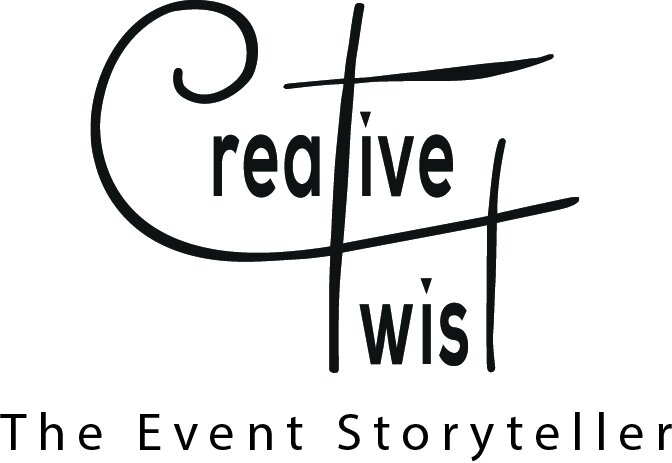Improvisation - an Essential Life Skill
/As meeting and event professionals we are by nature planners. We live by our lists, schedules and critical paths. We couldn’t imagine walking out on stage or allowing one of our clients to without a script, a show flow…a plan. Improvisation is the antithesis of planning. There is no script, no detailed critical path in place. There’s just a stage and an audience and dead air that needs to be filled. Now it might surprise you to know that there is structure at the core of improv. Yes the essence of improv is “making it up on the spot”, but before you can successfully step out on that stage and let your instincts, creativity and imagination flow you must have a foundation to build on.
Now, I’ll admit that the first thing that drew me to improv was the spontaneity of it. As an event planner and designer, I had many things in my life that were all about the details, schedules and list. The idea of challenging myself to jump out of my comfort zone and be completely spontaneous was exhilarating. I had found comfort in my systems and plans but on another level, in my everyday life, I craved a release. I wanted the freedom of play without the pressure of learning a script or blocking. So I took the leap and went to an improv class.
Almost immediately I was hooked. The utter lack of judgement was like a weight being lifted from me. I could throw out any idea or offer and the answer was always YES and it was generally followed by AND. Two very powerful and surprisingly liberating words. “Yes! And…” so simple yet so profound. This was the beginning of that structure I spoke of earlier. Accept an offer that is made. Every time. YES! Acknowledge that you heard it with AND. Then accelerate the offer by building on it and adding your own complimenting offer. “Yes! And…” the possibilities are endless.
I took more classes and learned more and more about the values at the core of improv:
Yes! And…
accept, acknowledge, accelerate
get out of your head and be in-the-moment
listen… really listen
be willing to build on someone else’s idea
be willing to let go of your idea
be fearless in making an offer
jump in when the ship is sinking and not only when it’s smooth sailing
and so on…
Improv was becoming part of my life and so naturally it began creeping into my work in the most exciting ways. I was more open and willing to put my ideas forward, I was more supportive of my colleagues’ ideas and I said yes rather than no when collaborating with my team. I was less of a wall flower in networking situations and stepped into conversations with openness and courage. I feared failure less and I succeeded more.
Not only did these skills help me with how I interacted with my colleagues but it helped me with my clients as well. I listened better to what their goals and needs were and I was not so precious about making adjustments to the way I wanted things. I was more in-the-moment and engaged and my relationship with my clients was richer for it.
Not surprisingly I was also much more confident when dealing with unexpected challenges or situations. We’ve all been there; the band is late, there are ten unexpected guests at the door, the AV Tech can’t get the speaker’s PowerPoint to work properly, the bride is melting down because the blush roses are too blush. It is in these moments that the improvisers’ instinct kicks in; you accept that the challenge is happening, acknowledge the impact it is having on the plan and accelerate the resolution by being in the moment, evaluating your resources, and saying “Yes! And…” We all have common sense and know how to deal with unexpected challenges – we’re planners after all. Improv just allows us quicker access to the knowledge we already have. It is the set of tools we use to get us out of our heads and into the moment.
It’s funny that once you recognize how improv has influenced the way you operate in life and at work, you begin to see the value of its application everywhere. It’s not surprising that improv is a recognized leadership and communication technique taught all over the world. It has applications in sales, team dynamics, creativity, innovation, crisis management and in a myriad of other situations. According to links found on The Applied Improvisation Network (www.appliedimprov.com), improv training is widely used in business, education, healthcare, prisons, rehabilitation, veteran services, and so much more.
Improv is truly an essential life skill and if you think about it, we all use improv to some degree every day. The magic happens when you go back to the core values of improv and work from that structure or foundation. Try saying “Yes! And…” more often and see what that does. Allow yourself and the people around you the freedom to play, to take risks and to maybe even fail a little. You’ll be the richer for it!
Kimberly is co-founder of a corporate training organization called Working Improv. www.workingimprov.com
















When crafting a shared experience you need to clearly understand the who, what and why. It’s best to begin with what.